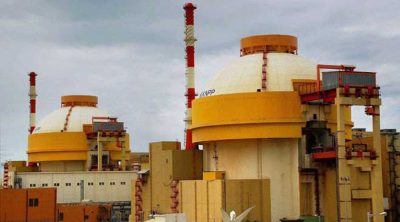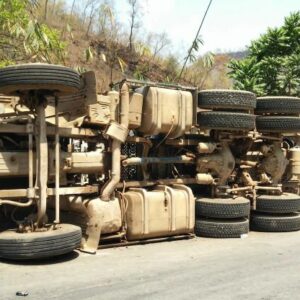
While the US is seeking to challenge Russia’s energy dominance in Europe, the Kremlin has looked towards Asia, particularly China and India, to find new markets in order to sustain the Russian economy and maintain Russia’s position as an energy power. Though the China-Russia relationship receives the most attention, the India-Russia relationship is just as crucial to Putin’s pivot eastward. Just five days ago, India and Russia signed a massive deal, which promised – among other things – the construction of at least 12 new nuclear reactors in India with Russian assistance. Though the deal was praised by the Indian and Russian press, many everyday Indians looked on in horror knowing that the promise of new nuclear reactors would only compound their suffering.

Nuclear power has been extremely controversial in India for years but heavily supported by the national government and media. The project at the heart of this controversy has been the Kudankulam Nuclear Power Project (KKNPP) which local Indians have been protesting the project since its inception in 1988. 28 years later, the first reactor was only recently commissioned, by Russian President Vladimir Putin himself, this past August while the second was commissioned just last Sunday.
The KKNPP has been riddled with problems for years, largely due to its poor choice of location, hurried manufacture, and its disregard for the local populace. The site of the reactors is in close proximity to an earthquake fault line and was affected by the 2004 tsunami. Yet, of greater concern is the fact that these reactors repeatedly failed the final commissioning tests, but were approved despite this by the Nuclear Power Corporation of India.
The reactors also hold the world’s record for most emergency shutdowns, also called scram. With the effects of Fukushima still lingering, this alone should have been enough to keep this poorly managed and dangerous project from moving forward. However, widespread rumors among the public of alleged backroom deals between Indian authorities and Russian firms have been credited with forcing the project’s advancement despite all indicators suggesting that the reactor is faulty and dangerously positioned.

However, the most disheartening of all of KKNPP’s consequences has been its effect on the local community. Local fisherman, who have depended on access to the sea for their livelihood, have been banned from fishing in the area due to the plant’s security restrictions. Protestors from the area have tried everything to end the project, but have only been met with brutal police retaliation with thousands of arrests being made. Over 8,000 Indians have been charged with “waging war against the government” and sedition, only for trying to protect their homes and livelihoods from a dangerous and unsafe project.
The natives of the Tamil Nadu province, where the reactor is located, are poorly represented in the Indian national government, which is chiefly ruled by two ruling parties who have little to no presence in the region. They are essentially voiceless and powerless against a project that threatens them directly while Indian and Russian politicians and oligarchs reap the benefits, leaving the Tamils to suffer from the environmental and socioeconomic consequences. If Russia is as committed to preventing nuclear disaster as they claim to be, they would do well to avoid exploiting the Indians of Tamil Nadu in their attempts to strengthen their standing in Asia.
What are your thoughts? Please comment below and share this news!
This article (The Next Fukushima? Nuclear Plant In India Goes Live Despite Controversy) is free and open source. You have permission to republish this article under a Creative Commons license with attribution to the author and TrueActivist.com


